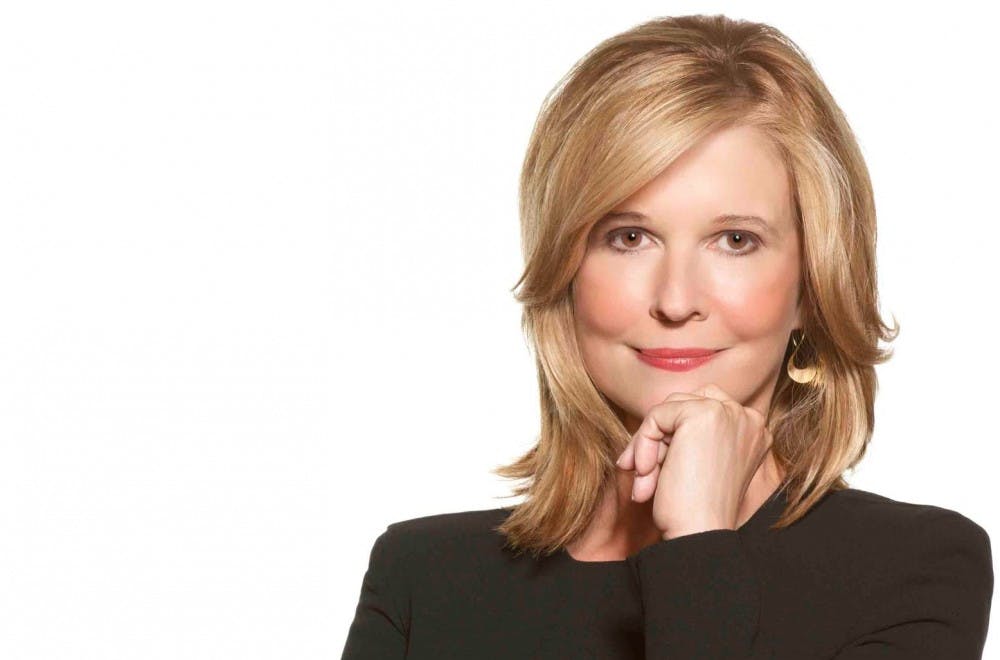Correction: In the article on page 5 of the Sept. 28 edition of The Pendulum, an article quoted junior Maddy Gross “condemning Parker’s appearance.” In her column, Gross had actually advocated for “middle ground,” and did not condemn Parker coming. ENN regrets the error.
The fall semester at Elon University has just started, but this summer, Kathleen Parker was the catalyst for many Elon students grumbling about certain aspects of the upcoming school year — complaints that were more serious and ethically challenging than homework and exams.
A planned Baird Pulitzer Prize lecture in October from the syndicated Washington Post columnist was met with hostility among the Elon community, as more than 300 students, alumni and others signed a petition asking the school to cancel the event. The petition, which was spearheaded in July by senior Becca Nipper and called Parker “dangerous,” was ultimately brought to the attention of the Elon administration after being forwarded to faculty and staff. The petition took aim at Parker’s work, particularly her 2008 book, “Save the Males: Why Men Matter, Why Women Should Care.”
News outlets around the country publish Parker’s columns, and she is known for her candidness and perspectives on issues such as feminism and sexual consent. In her own words, she is politically “slightly right of center,” and is frequently on-air on NBC’s “Meet the Press,” MSNBC’s “Hardball” and Fox News’ “Media Buzz.” The petition, titled, “A Request for the Removal of Baird Pulitzer Prize Speaker Kathleen Parker,” said Parker shouldn’t speak at Elon because her ideologies are in opposition of those that Elon maintains.
“Parker’s journalism is more than just her opinion,” the petition said. “It’s a consistent attack on all of the things Elon has been working toward — ending sexual assault, increasing diversity and creating a safe and encouraging environment for all students regardless of gender, race, ethnic background or sexual orientation.”

The story was covered locally and nationally, from the Raleigh News & Observer to the Daily Caller in Washington, D.C. Elon released a statement saying the event would take place as planned despite the heavy pushback. Vice President for University Communications Dan Anderson said Elon is unbiased toward the views of invited speakers, and Parker’s talk would be an opportunity for students to introspect and hear a different ideology than their own. Parker even publicly flirted with rescinding her lecture and not coming to Elon on Twitter — but shortly after, she wrote, “Dear #Elon students, I look forward to speaking w/you this fall about life, love and politics. I’m confident we’ll learn from each other.”
“While some may disagree with the views of speakers, we believe there is great value in holding our personal beliefs up to the tests of those who hold different perspectives,” Anderson said in the statement. “That is a key characteristic of a strong intellectual environment. Our world cannot move forward if we all withdraw into camps of like-minded people.”
Reactions since the initial fire of the controversy have been mixed, with students from both sides expressing their opinions on this issue. Junior Maddy Gross wrote a column in The Pendulum condemning Parker’s appearance.
“I’m afraid there are Elon students out there who will fall too in love with what you say and decide that validation from a Pulitzer Prize winner is enough to make them decide they don’t need consent,” Gross said.
While many students oppose Parker speaking, some echoed Anderson’s statements of allowing her to come and speak.
Miles Garrett, a junior, wrote a column for The Pendulum echoing Anderson’s statement on challenging oneself.
“Removing someone from speaking sets a precedent that may not be seen as a big deal in the present, but could silence those in the future,” Garrett said in the column. “In revoking someone being able to speak at an institution, you are setting an example in deciding whom you want to hear.”
Sophomore Nicholas Lavezzorio also said Parker should speak because it’s her constitutional right.
“It doesn’t matter if you agree with her or not. Parker should come and speak in October,” Lavezzorio said. “She has the right to speak her opinion, and, personally speaking, I want to see how everyone reacts.”


